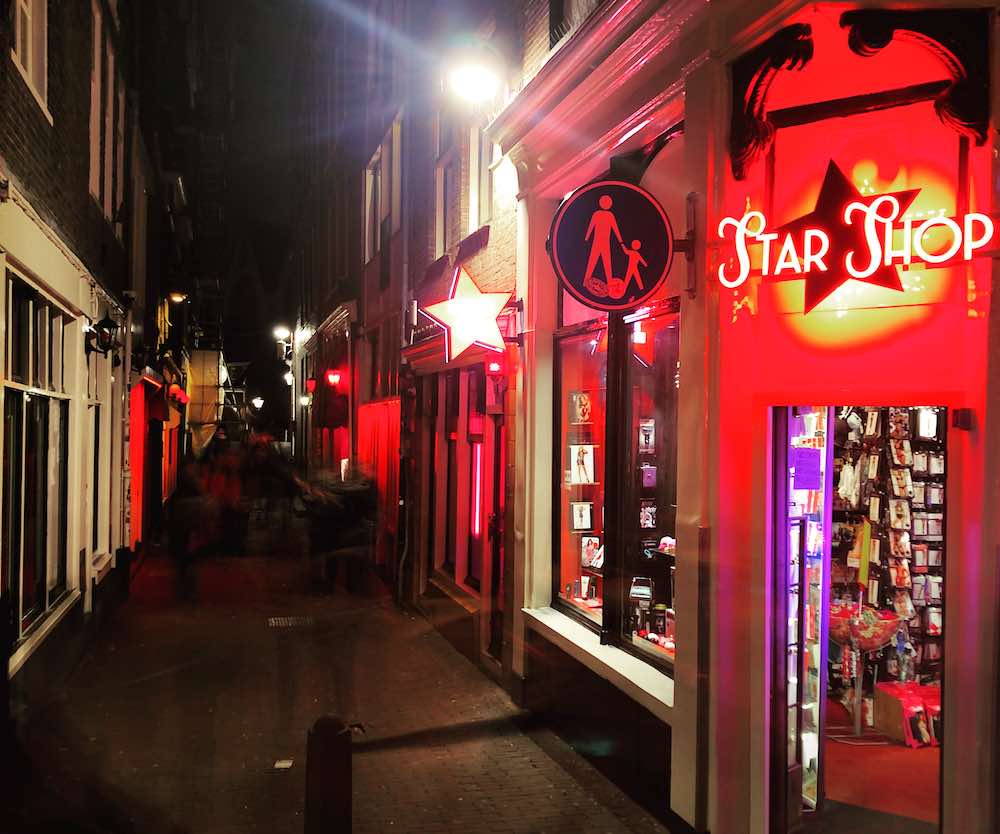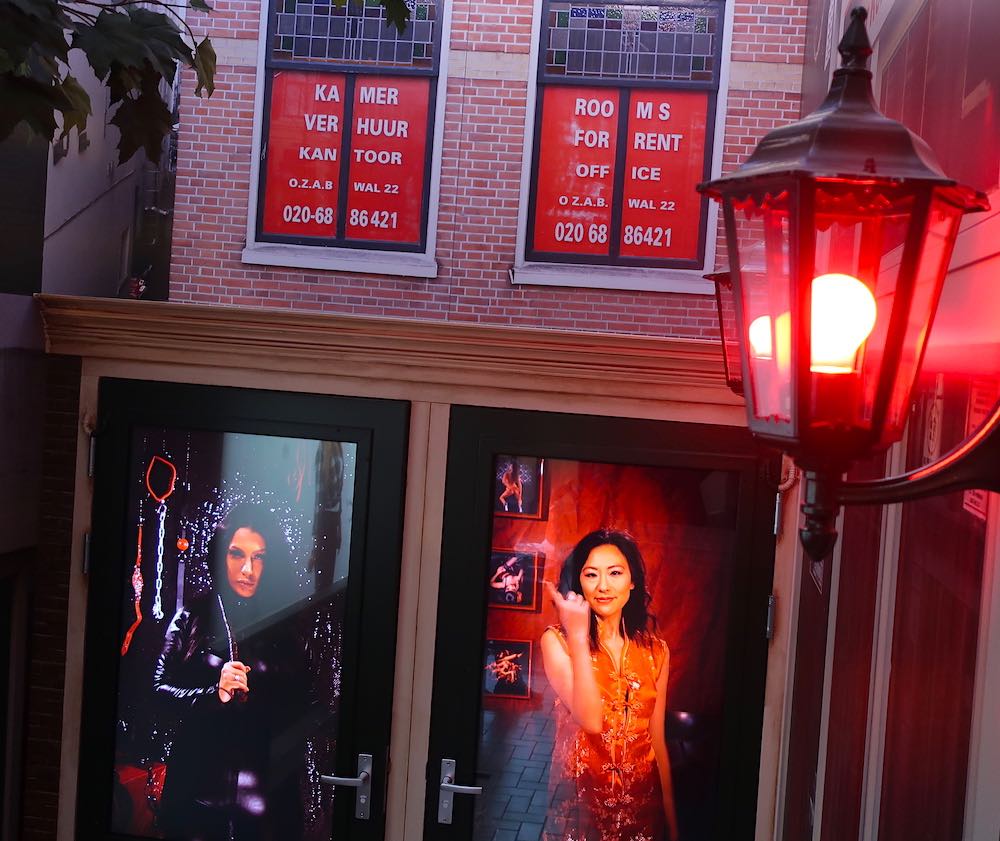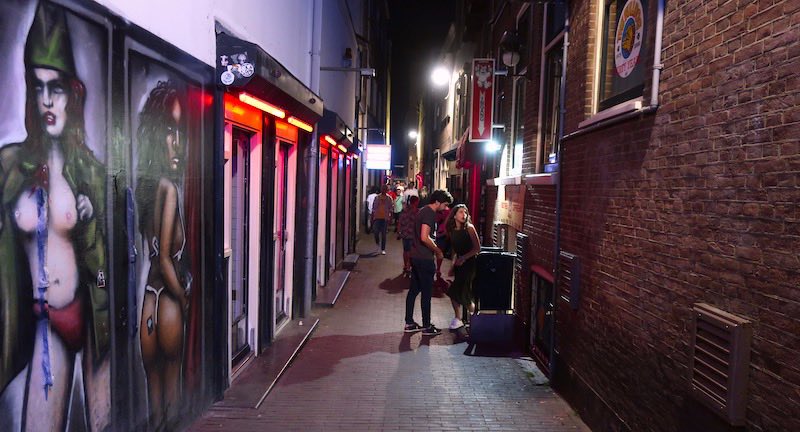Newly Proposed Dutch Prostitution Regulation, What’s Wrong With It?
Posted on: November 6, 2019

New Dutch Prostitution Regulation Won’t Let Sex Workers Become Their Own Bosses
The newly proposed Dutch prostitution regulation marginalises Sexarbeiterinnen and can increase the chance of human trafficking, writes Rik Viergever in the Dutch newspaper NRC. Rik Viergever obtained his PhD on “care after human trafficking” and was a project manager at CoMensha. Since this year he has been a director at the non-profit brothel My Red Light in Amsterdan’s Red Light District.
Dutch Prostitution Regulation For All Types Of Sex Work
There are many different types of der Prostitution angesehen werden. in the Netherlands: escorts, window workers, home workers, solicitors, workers in private homes, bdsm mistresses, cam workers, strippers and much more.
Sex workers are made up of both foreign and Dutch women, men and trans-persons. Among Dutch students, 6 percent have “sex-worked” and 27 percent have sometimes considered it. One in four men in the Netherlands has paid for sex and 5 percent have done so last year.
Newly Proposed Dutch Prostitution Regulation
Last week the Dutch Ministry of Justice and Security presented a new law on Dutch prostitution regulation for consultation, everyone can respond. This law proposes – broadly speaking – two measures. The first is that every sex worker in the Netherlands must have a permit to work and is entered in a national register. The idea is that as a result, overseers can more easily find sex workers and in permit interview they can check whether they really want to do this work.
New Prostitution Regulation Sounds Too Good To Be True
At first glance, this seems like a good idea. But Dutch authorities are already able to find sex workers: they can visit anyone who works in a brothel and all other sex workers need to advertise to get customers. The police and municipalities scan those advertisements and they’re getting better at it. Various municipalities and police departments, for example, use a so-called web crawler: a software program that browses through the Internet methodically. They have achieved successes in tackling human trafficking and unlicensed sex work using this method.
When it comes to sex workers, it seems unlikely that a victim will say in one conversation that they are being forced or exploited. The police and the judiciary sometimes spend years building a case, precisely because victims are so scared or have other reasons not to mention the abuse they are undergoing. A permit therefore does not mean that the risk of abuses disappears.
Dutch Sex Workers Forced Underground
At the same time, a licensing obligation has disadvantages that are guaranteed. I know from practice that many sex workers do not want to be registered. They fear that information will leak out and that they will experience problems when people discover their profession. That fear is real. Sex workers are still stigmatized and the profession remains a taboo. For example, I regularly hear about sex workers who have been evicted from their homes because of their profession, even by government housing associations. When you are a sex worker, It’s also more difficult to buy a house, open a bank account or take out insurance. So it’s guaranteed that sex workers will start working illegally as a result of the new Dutch prostitution regulation. This is of course very worrying as there’s evidence that abuses occur more often when sex workers work illegally.
The Fear Of Police Will Return
In addition, these sex workers will contact the police less or not at all in case of abuse, all the more because of the fines (up to 20,500 euros!) that will be imposed on work without a permit. For the same reasons, health workers are concerned that fewer sex workers will be tested or seek help because of the proposed Dutch prostitution regulation. Municipalities that have tried to introduce a permit requirement in recent years have been criticized by the Dutch Data Protection Authority because of these very reasons.

Uniform Rules For The Whole Sex Industry
The second major measure in the Dutch prostitution regulation is that there will be uniform national rules for sex businesses. This is basically a good idea. But one of those Regeln is that brothel holders lose their license when there’s a sex worker at that company who’s a victim of human trafficking. This sounds good of course, were it not for it that the sex business acquires an interest not to report suspicions of human trafficking (anymore). Instead, they will send a potential victim away. This puts the victims out of sight of the police and social workers. Moreover, human trafficking is often hidden. Often it takes place behind the front door, where a victim is forced or exploited by her partner. You cannot expect from a sex company that they can always signal that.
New Prostitution Regulation, Same Old Approach
In terms of approach, the new prostitution regulation is similar to the current sex work policy in many municipalities. The emphasis is on combating human trafficking. This focus is due to official embedding: the development of sex work policy is usually done by departments that deal with safety, rather than what you would expect, social affairs and employment. The new prostitution regulation is also written at the Ministry of Justice and Security. Contradictory enough, a focus on safety usually marginalizes sex workers, which in turn makes them more vulnerable to human trafficking.
How To Tackle The Problem
The right approach is reversed: allow as many sex companies as the market demands and create a sector that is as transparent as possible. Do not register sex workers but make it as easy as possible for them to seek help. Work together with sex companies in tackling abuses. Ensure that these have the potential to properly identify human trafficking, for example by training employees. Do not punish when there is human trafficking or other abuse, but when companies fail to report it. This approach has been successful for years in identifying domestic violence and child abuse. There are good reasons to believe that this also applies to human trafficking.
Emancipate Prostitution In The Netherlands
Finally, much is still needed to make sex work a good, emancipated and safe sector in the Netherlands. As mentioned earlier, banks, insurers and payment services regularly refuse sex workers. In addition, there is hardly any money for good projects and research in the sex work sector, the sex worker trade union (PROUD) is grossly under-funded, and sex businesses are completely banned in a quarter of the municipalities (the ‘zero option’) while legally speaking this is not allowed. The new Dutch prostitution regulation does not solve these problems and will even allow the zero option.
A Safe Labor Sector Should Be The Starting Point
This is my main criticism of the new prostitution regulation: it takes the wrong starting point. The law is largely about preventing and combating abuses. This is very important. Human trafficking, for example, is a terrible crime. But the prevention of abuse should not be the basis for a labor sector law. That basis should be: the creation of a good, emancipated and – yes, also – safe labor sector. Such an approach starts with ensuring a good legal and social position of the workers. There is so much to do to get the sex work sector up to that level. And this law works against that goal.
















